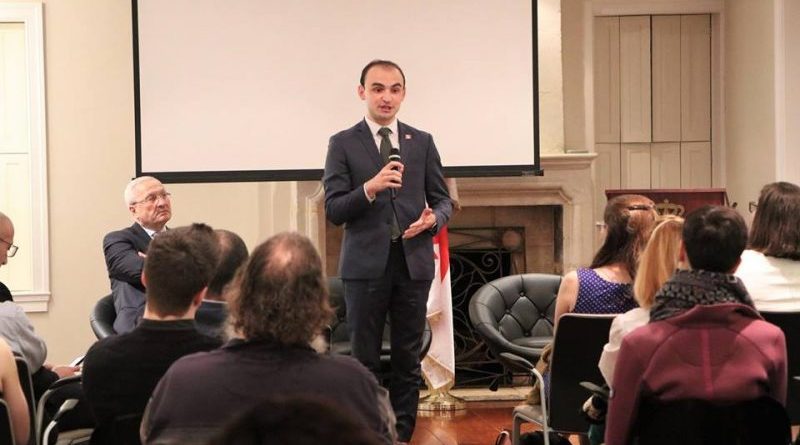Reflecting on Research in Washington, D.C. and Moscow
By Zviad Adzinbaia, MALD 2018 Candidate, The Fletcher School
As part of my capstone research on “Russia’s Influence on Advancing U.S.-Georgia Security Cooperation”, I traveled to Washington D.C. and Moscow in February and March. In addition to my trip to Tbilisi in past December-January, throughout these visits, I conducted interviews as well as informal talks with security experts and policy practitioners in both capitals.
In Washington D.C, I held meetings at the Atlantic Council and Center for Strategic and International Studies (CSIS), where I met with senior experts focusing on US-Georgia and US-Russia relations. My discussion with Ambassador John Herbst, director of the Atlantic Council’s Eurasia Center, provided me with a valuable first-hand insight on Russia’s actual and potential policies toward US-Georgia cooperation in the security field. Among other highly rewarding private discussions, I had an opportunity to interview Luke Coffey, Director of Douglas and Sarah Allison Center for Foreign Policy at the Heritage Foundation. Notably, Dr. Coffey recently published a Special Report, where he is arguing for increasing US and NATO support to Georgia. Coffey believes that Georgia is a valuable partner for the United States for three core reasons: According to him, Georgia is a dependable ally, who has proven it in Iraq and Afghanistan, being a major non-NATO troop contributor there. Coffey also says that Georgia’s strategic location and its status of a success story in democratic transformation, increases the country’s value as a significant ally of the United States.
Throughout the Fletcher trip to Russia on March 15-25, I had a chance to interact with Moscow-based Russian experts and scholars on Russia’s foreign and security policy. Most analysts and experts mainly shared the vision of the Russian government stating that Russia’s interests in Georgia are high given Moscow’s wide geostrategic vision of restoring its great power status. Among my fellow colleague from Fletcher, I also closely worked with graduate students at MGIMO University, on cyber security-related matters between the United States and Russia. Interestingly, the next generation of diplomats and policy makers at MGIMO present an alternative vision of Russia’s relations with the United States and the West, which seems less confrontational and more based on the need of cooperation. Another takeaway from my visit to Moscow pertained to Russian political establishment’s fundamental differences vis a vis the United States and the rest of the Western front. While being vocal about some of US foreign policy gaps in the past two decades, either Russian experts or government representatives hardly spoke about Russia’s own foreign policy failures, specifically its revisionist posture toward Georgia, Ukraine, or Europe at large. The Fletcher delegation concluded the Russia trip at the US Embassy in Moscow. Speaking to the Fletcher and MGIMO groups, Ambassador John Huntsman provided his remarks on key constrains in US-Russia relations and hoped for the new generation’s role in moving toward more constructive engagement.
Both trips to Washington D.C. and Russia were highly valuable for my better understanding of US-Russia relations within the broader transatlantic security context. These opportunities were made possible with the generous support of The Fletcher School and the Carnegie Corporation of New York, for which I am cordially grateful. I believe that the experiences gained through these trips will undoubtedly help me contribute to improving European and Euro-Atlantic security.

